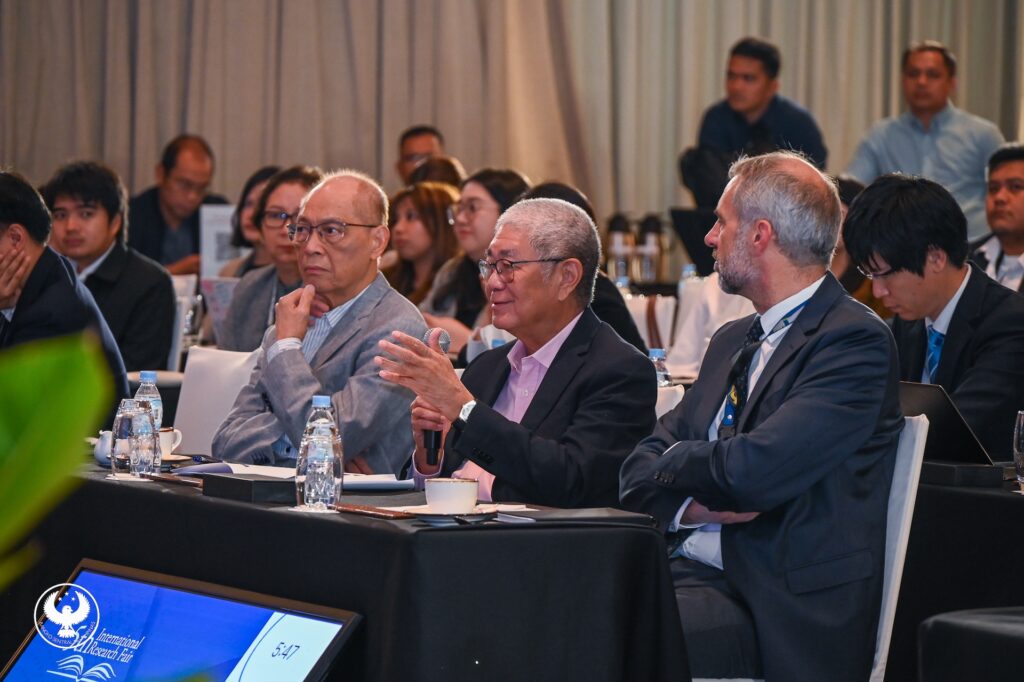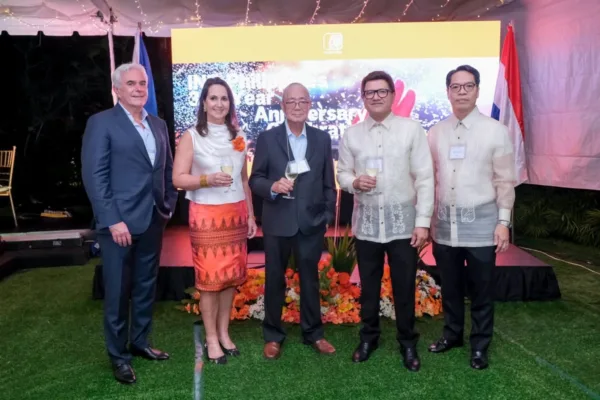In a period characterized by shifting global dynamics and economic uncertainties, the Philippines is demonstrating remarkable resilience, recording a significant balance of payments (BOP) surplus in June 2025 and strengthening its gross international reserves (GIR).
This positive economic momentum is underscored by the Bangko Sentral ng Pilipinas (BSP)’s proactive stance, with Governor Eli M. Remolona, Jr. emphasizing the critical role of cutting-edge research in navigating an increasingly fragmented global economic environment.

June 2025 saw the Philippines’ BOP, a crucial indicator of the country’s transactions with the rest of the world, register a surplus of US$226 million. This marks a notable reversal from the US$155 billion deficit recorded in June 2024, signaling a healthier inflow of foreign currency into the economy. The BOP surplus primarily reflected foreign currency deposits made by the national government with the BSP and income generated from the central bank’s strategic investments.
This positive monthly performance significantly contributed to narrowing the country’s year-to-date BOP deficit, reducing it from US5.8 billion in January – May 2025 to a more manageable US5.6 billion by end-June 2025.
While preliminary data still point to a continued trade in goods deficit 1 as the main contributor to the year-to-date shortfall, the impact was partly offset by sustained net inflows from resilient personal remittances sent home by overseas Filipinos, foreign borrowings undertaken by the national government, and robust foreign portfolio investments.
Mirroring the improved BOP position, the country’s gross international reserves (GIR) also saw an uplift, rising from US105.2 billion at the end of May 2025 to a robust US106.0 billion by end-June 2025. This latest GIR level provides a formidable external liquidity buffer, equivalent to 7.2 months’ worth of imports of goods and payments of services and primary income. 2
More impressively, it covers approximately 3.4 times the country’s short-term external debt based on residual maturity, 3 signaling a strong capacity to meet external obligations and absorb potential economic shocks. These reserves, composed of foreign-denominated securities, foreign exchange, and gold, are vital for financing imports, servicing foreign debt, stabilizing the national currency, and safeguarding against global economic volatilities.
Tackling global headwinds: BSP research strengthens BOP resilience

BSP Governor Eli M. Remolona, Jr. (center) during the 5th BSP International Research Fair held in
Cebu. He is joined by Monetary Board Member Benjamin E. Diokno (left) and BIS Monetary and Economics Department Deputy Head Frank Smets (right).
However, the path forward is not without its complexities. Speaking at the 5th BSP International Research Fair (IRF) held in Cebu from July 8 to 9, 2025, BSP Governor Eli M. Remolona, Jr. highlighted the imperative for continuous and rigorous research.
Themed, “From Pandemic and High Inflation to Global Fragmentation and Structural Transformation: New Central Banking Challenges,” the fair served as a crucial platform to examine how evolving trade dynamics, escalating geopolitical tensions, and persistent supply chain disruptions are fundamentally reshaping the global economic landscape.
Governor Remolona emphasized to attendees: “You are finding new pathways in your research that will help us with the global fragmentation that we are witnessing today.”
Discussions at the IRF underscored the immense value of research in refining the analytical models that underpin policy decisions and in updating crucial policy frameworks. Participants were also urged to look beyond conventional monetary policy tools and critically assess the viability and soundness of unconventional approaches in today’s intricate economic environment.
Advancing central banking research for PH’s enduring economic strength

The BSP Research Academy brought together more than 100 central bankers, policymakers, and members of the academe to discuss new challenges central banks face in an increasingly fragmented global economic environment.
The IRF gathered an impressive array of thought leaders, showcasing papers by researchers from institutions including the BSP itself, the Bank for International Settlements (BIS), the International Monetary Fund, the Bank of Japan, and various universities worldwide.
High-profile attendees included BIS Monetary and Economics Department Deputy Head Frank Smets and BSP Monetary Board Members Benjamin E. Diokno, Romeo L. Bernardo, Rosalia V. De Leon, Walter C. Wassmer, and Jose L. Querubin, among others.
Organized annually by the BSP Research Academy, the International Research Fair stands as a vital platform for presenting cutting-edge research directly relevant to central banking practices, not just in the Philippines but across other developing economies.
By fostering such intellectual exchange and deep analytical work, the BSP is proactively equipping itself to navigate the complexities of global economic fragmentation. This commitment to research, combined with the country’s strengthening BOP and robust GIR, positions the Philippines on a firm trajectory towards sustained economic stability and growth amidst an ever-changing global environment.
—
[1] Based on the preliminary data from the Philippine Statistics Authority’s (PSA) International Merchandise Trade Statistics (IMTS), the trade deficit for January-May 2025 settled at US$19.7 billion, down from the US$20.7 billion deficit posted in January-May 2024.
[2] Specifically, the latest GIR level ensures availability of foreign exchange to meet balance of payments financing needs, such as for payment of imports and debt service, in extreme conditions when there are no export earnings or foreign loans.
[3] Short-term debt based on residual maturity refers to outstanding external debt with original maturity of one year or less, plus principal payments on medium- and long-term loans of the public and private sectors falling due within the next 12 months.








